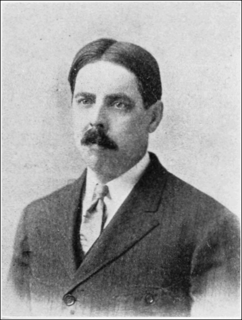Цитата Эдварда Торндайка
Нигде в большей степени, чем в своих умственных способностях, человек не является частью природы.
Связанные цитаты
Природа есть неорганическое тело человека, то есть природа, поскольку она не есть человеческое тело. Человек живет природой, т. е. природа есть его тело, и он должен поддерживать с ней непрерывный диалог, чтобы не умереть. Сказать, что физическая и умственная жизнь человека связана с природой, значит просто сказать, что природа связана с самой собой, ибо человек есть часть природы.
Когда говорят о человечестве, основная идея заключается в том, что это нечто такое, что отделяет и отличает человека от природы. В действительности же такого разделения нет: «природные» качества и те, что называются истинно «человеческими», нераздельно срослись. Человек в своих высших и благороднейших качествах является всецело природой и воплощает в себе ее сверхъестественный двойственный характер. Те из его способностей, которые ужасны и считаются бесчеловечными, могут быть даже той плодородной почвой, из которой только и может вырасти все человечество в порывах, поступках и трудах.
Философ подобен человеку, постящемуся среди всеобщего опьянения. Он один воспринимает иллюзию, добровольными игрушками которой являются все существа; он менее обманут, чем его ближний, по своей природе. Он судит более здраво, он видит вещи такими, какие они есть. В этом-то и состоит его свобода — в умении ясно и трезво видеть, в силе мысленной записи.
Любитель природы — это тот, чьи внутренние и внешние чувства еще верно приспособлены друг к другу; который сохранил дух младенчества даже в эпоху зрелости. Его общение с небом и землей становится частью его ежедневной пищи. В присутствии природы в человеке пробегает дикий восторг, несмотря на настоящие печали.
Мы по-прежнему говорим с точки зрения завоевания. Мы еще не созрели настолько, чтобы думать о себе лишь как о крошечной части огромной и невероятной вселенной. Отношение человека к природе сегодня критически важно просто потому, что мы теперь приобрели роковую силу изменять и уничтожать природу. Но человек — часть природы, и его война с природой — это неизбежно война с самим собой.
В философской антропологии... где предметом является человек в его целостности, исследователь не может довольствоваться, как и в антропологии как отдельной науке, рассмотрением человека как другой части природы и игнорированием того, что он, исследователь, сам человек и переживает это человечество в своем внутреннем опыте так, как он просто не может переживать никакую часть природы.
У палеолитических охотников, нарисовавших непревзойденные изображения животных на потолке пещеры в Альтамире, были лишь рудиментарные инструменты. Искусство старше производства для использования, а игра старше работы. Человека формировало не столько то, что он должен был делать, сколько то, что он делал в игровые моменты. Именно ребенок в человеке — источник его уникальности и творчества, а игровая площадка — оптимальная среда для раскрытия его способностей.
Он не душа Природы и не часть Природы. Он обитает в вечности: Он обитает на высоте и во святилище: небо — Его престол, а не средство передвижения, земля — Его подножие, а не Его одеяние. Однажды он разрушит и то, и другое и создаст новые небо и землю. Его нельзя отождествлять даже с «божественной искрой» в человеке. Он «Бог, а не человек».






































